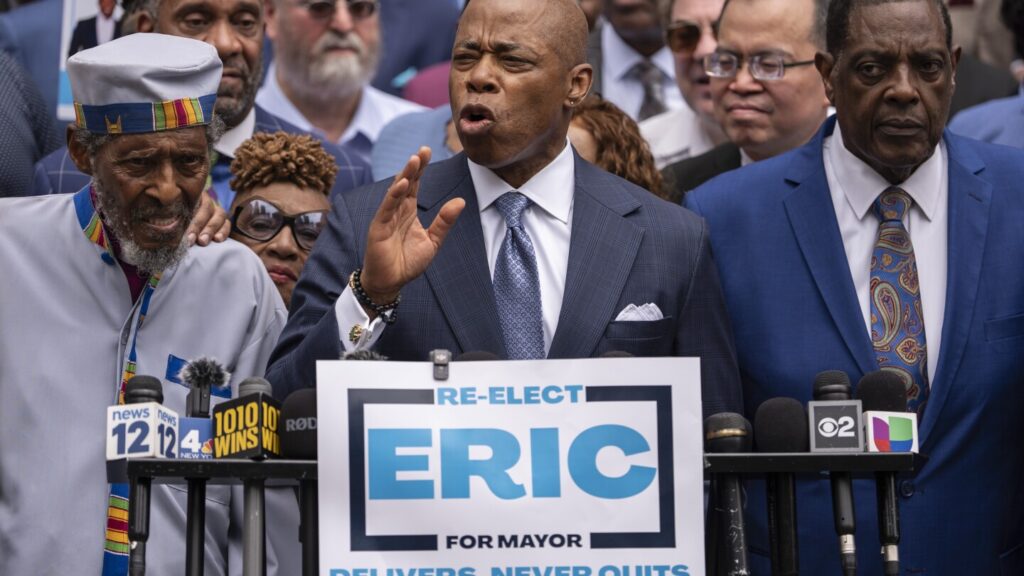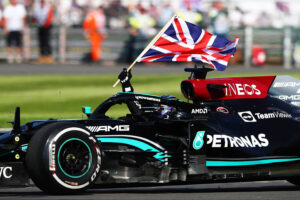
NEW YORK (AP) — New York Mayor Eric Adams launched his independent reelection campaign on Thursday, aiming to secure a second term amidst a backdrop of political challenges. Speaking on the steps of City Hall, Adams highlighted his achievements while taking jabs at his anticipated opponent, Zohran Mamdani, a rising star in the Democratic Party.
Adams, who has opted to run as an independent following a corruption indictment and subsequent legal dismissal, criticized Mamdani as a “silver spoon” candidate with limited political accomplishments. “This election is a choice between a candidate with a blue collar and one with a silver spoon,” Adams declared. “A choice between dirty fingernails and manicured nails,” he added, emphasizing his working-class roots.
Adams vs. Mamdani: A Clash of Ideals
Zohran Mamdani, a 33-year-old democratic socialist, recently secured a surprising victory in the Democratic primary against former Gov. Andrew Cuomo. Mamdani’s campaign, marked by its viral social media presence, has focused on tackling New York City’s high cost of living. Despite his success, Mamdani faces criticism for his limited legislative record and ambitious campaign promises.
Adams, a retired police captain and former Brooklyn borough president, has positioned himself as a champion of working-class New Yorkers and public safety. He sees a potential path to victory against the relatively inexperienced Mamdani. “I’m not interested in Twitter politics, I’m interested in getting the trash picked up,” Adams remarked, contrasting his practical approach with Mamdani’s more idealistic platform.
The Political Landscape: A City Divided
Adams’s decision to run as an independent follows the dismissal of a corruption case against him, which he claims hindered his campaign efforts. Despite this setback, Adams remains confident, asserting on social media that “the fight for New York’s future begins tonight” as primary results showed Mamdani in a strong position.
The upcoming election will see Adams and Mamdani face off against other candidates, including Republican Curtis Sliwa, founder of the Guardian Angels anti-crime group. The outcome will depend on New York City’s ranked-choice voting system, with final results expected after July 1.
Historical Context and Voter Sentiment
New York City’s political history is marked by its predominantly Democratic voter base, with about two-thirds of registered voters identifying as Democrats. However, the city has elected unaffiliated mayors in the past, such as Mike Bloomberg in 2009. Adams’s challenge lies in overcoming his current standing with voters, many of whom are critical of his leadership.
Adams’s rally on Thursday was disrupted by protesters, highlighting the polarized atmosphere. Despite the interruptions, Adams remains hopeful of gaining support from moderate and business-focused voters who may be wary of Mamdani’s progressive agenda. The event featured endorsements from faith leaders and former elected officials, signaling a broad coalition of support.
Looking Ahead: The Road to November
As the general election approaches, both Adams and Mamdani will need to solidify their bases while appealing to undecided voters. Mamdani has accused Adams of exacerbating the city’s cost of living crisis, stating, “New Yorkers have been suffocated by a cost of living crisis and this Mayor has taken almost every opportunity to exacerbate it, all while partnering with Donald Trump to tear our city apart.”
Meanwhile, former Gov. Cuomo is considering an independent campaign, which could further complicate the electoral landscape. The outcome of this election will not only determine the city’s leadership but also reflect broader national trends in urban governance and political ideology.
The stakes are high as New Yorkers prepare to cast their votes, with the city’s future direction hanging in the balance. As the campaign unfolds, the candidates’ ability to connect with voters and address pressing issues will be crucial in shaping the outcome of this pivotal election.






